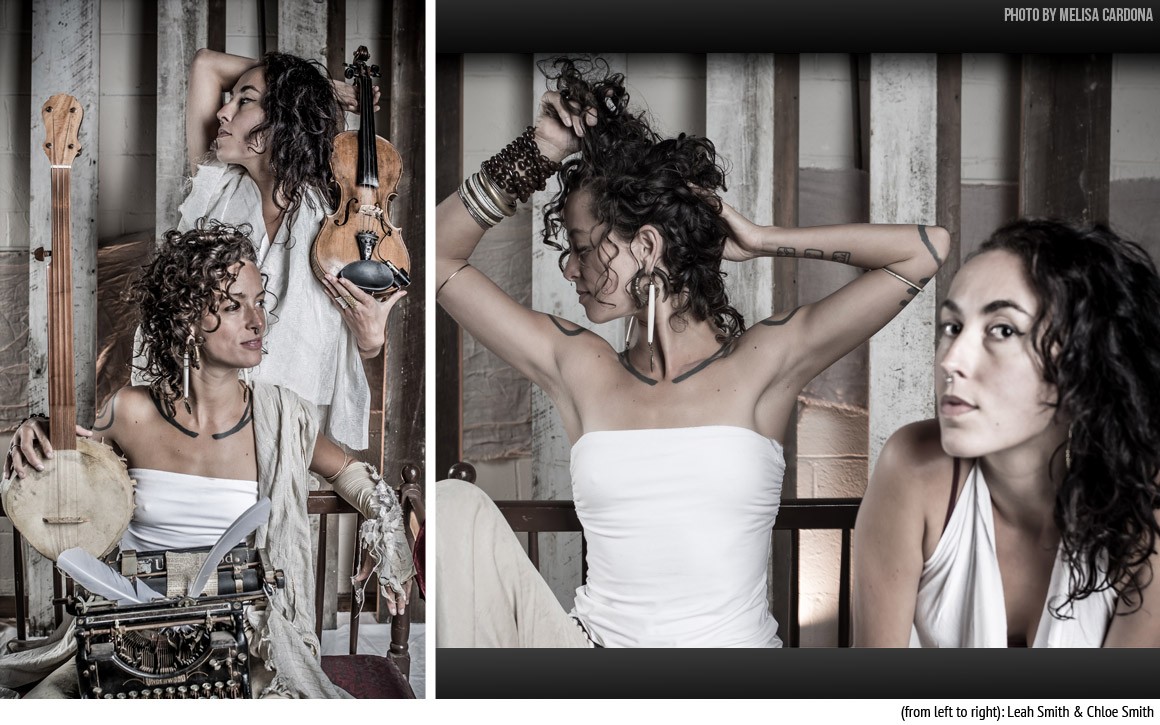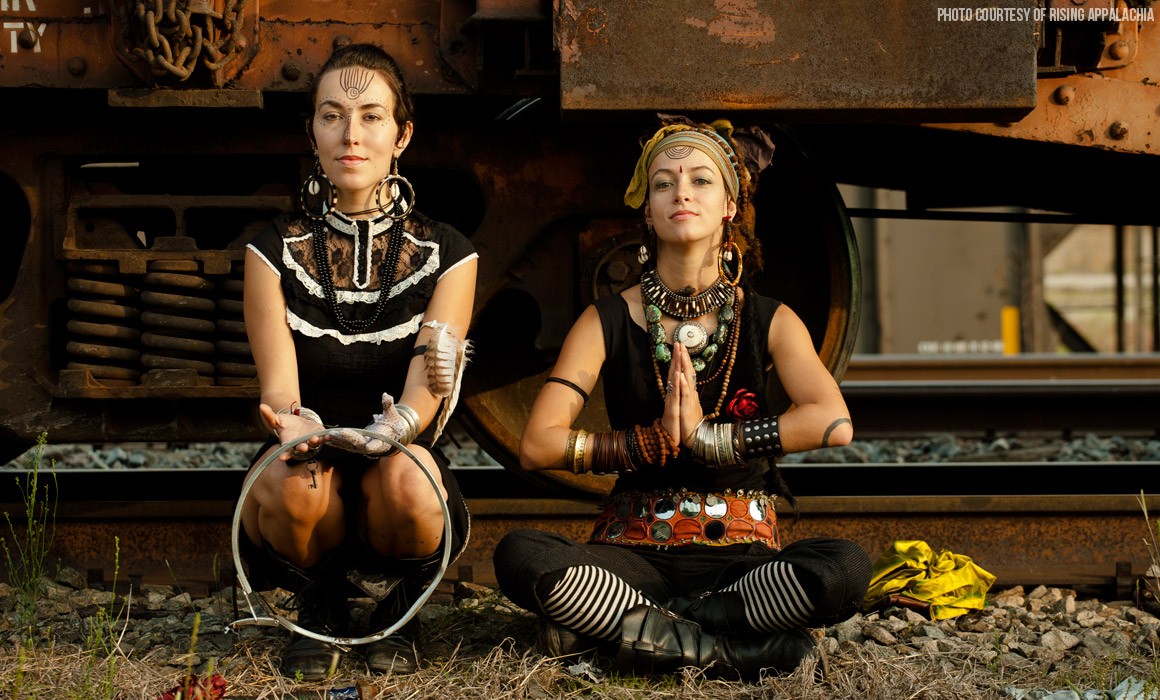Folk music has never been so cool. First it was Bob Dylan then it was Bon Iver now it’s Rising Appalachia. But unlike Dylan or Iver, Appalachia takes us into the back woods of the Deep South and into the old country sounds of yesteryear.
Originally from Atlanta, Georgia, sisters Leah (34) and Chloe (30) Smith were no strangers to the Appalachian culture. Their mother was a musician, playing jazz-piano and fiddle, and their father, a folk-sculptor and painter. Growing up in a house of artists, the girls naturally took to their roots and combined their parents’ talents.
Since 2008, Rising Appalachia has become known as one of the most avant-garde and ethereal folk troupes on the scene. Reflecting sounds and cultural nuances from the British Isles, Eastern Europe, Africa, and Central America, the sisters organically fuse their travel experiences with their musical heritage to create a complex yet sultry act.
MiLLENNiAL had the pleasure of speaking with Leah and Chloe, after they had just returned home to Ashville, North Carolina from Costa Rica. Leah was drinking her self-proclaimed Appalachai tea while she spoke about her journey.
“We’ve spent the last eight years of our lives cultivating this relationship with using our voices for cultural engagement and involvement and for cross-cultural dialogue. We’ve used that a lot through folk music,” she tells us.
One thing the sisters take very seriously as performers and something they often investigate is their role as musicians. They look at music and their place within it as being public servants and allow their messaging to have a profound affect on understanding the world we live in today.
“We don’t necessarily need to come with the answers but we want to create a performance and music that asks questions and fosters dialogue and requests that our audience and fan base is coming to the table to help us flush out answers,” Leah emphasizes. She says these conversations often surround sustainable transportation, food justice, human rights, environmental protection, and equality.
Creating Wider Circles
Their latest album, Wider Circles, set to debut April 21, 2015, is textured with a lot of these questions. In particular, “Medicine” a song off the new album, brings awareness to the holistic properties plant life provides.
The song “draws attention to the natural medicine and natural healing that we’ve experienced over the years,” Chloe says, “there is a new under layer of messaging of using these tools in nature that we have around us to heal ourselves and reconnect to the world we are living in.”
This is the first time the band allowed their recording process to breathe. “We let this one percolate,” Leah says. She compares the production to that of a “slow cooker” allowing it to embellish subtleties and get deeper with more refined lyrics.
“Wider circles is a big stamp of original material.”
Their previous albums often reflected the vibrant and authentic nature of their live performances mixed with a new take on traditional songs, but as Chloe says, “[Wider Circles] is just a big stamp of original material.”
Leah adds, “This album is the culmination of many years and many logged hours of travel and live shows. It’s what I consider our swan project, the proudest work we’ve made.”
This was also the first album they recorded with their newest band mate, multi-instrumentalist and upright bassist, David Brown, who has helped the band take their “level of mastery to a new level.”
Performing in Untraditional Venues
Rising Appalachia wouldn’t be the grassroots folk activists they are if they played in traditional settings. “We always steered clear from bars and loud venues where people wouldn’t pay attention or listen much. We wanted to bring and invite people to be part of our project,” Chloe explains.
Leah tells us they built their image on the backbone of radical non-traditional communities. “It has been really fun to break the rule on what a traveling performance group does – we’ve played everything from a herbalist conference to church youth groups, juvenile detention centers, we’ve played in nursing homes, lots of farm concerts and house concerts, small villages, soccer fields, and libraries.”
The upside of performing in intimate venues is that the band is able to meet their fans one-on-one and establish a direct relationship within various neighborhoods around the world. Chloe adds, “We have a really spectacular, very authentic, sweet and genuine fan base. Every time I have an interaction online or after a show, I get this feeling that these are the types of people I would like to hang out with and have in my life.”
They even played a concert on a train en route from southern to northern Sweden. Recognizing the under utilized train system here in the States, the sisters want to take their “train tour” from coast to coast to promote the use of alternative modes of transportation and the power of locality.
Disrupting the Mission of Musicians
This sense of community and belonging that Rising Appalachia offers listeners is what sets them apart as artists. They are whole-heartedly involved in their audience. Their ultimate goal is to change the role musicians play in popular culture.
“We want to see a return for music to be a community experience.”
“We want to see a return for music to be a community experience and a tool where musicians are held accountable to be carrying the stories and the dialogues and the messages of their communities.” Leah explains, “It’s a bigger responsibility than just entertainment, and that the role of the musicians comes back into a role of social service.”
Touching on a bit of wisdom from home, Chloe says, “Our father taught us a long time ago to not just do art for art’s sake but involve community and have conversations that unify people.”
Rising Appalachia will be touring the Unities States throughout 2015. Be sure to follow their schedule on their official website and keep up with their activist efforts on Facebook.



